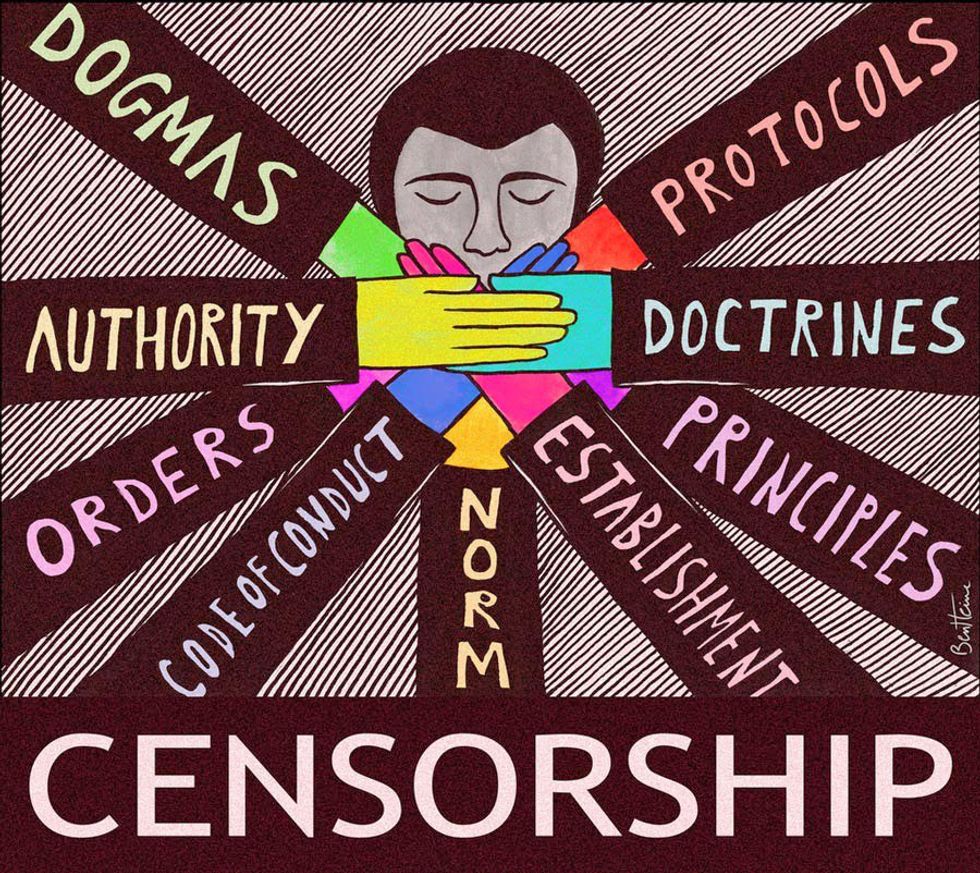If you have nothing nice to say, then say nothing at all. We have probably all heard our parents say something like that growing up, but I think you would be surprised if you heard an adult saying that to another adult with complete seriousness. Yet that is essentially what people are saying when they demand that lectures on certain topics are stopped or that speakers who espouse differing ideas should have trigger warnings.
I am not talking about trigger warnings that pertain to sexual assault, violence and suicide — that is a whole different story, and this is not about that. This is about censoring ideas.
I am talking about the concept that speakers and lectures should come with trigger warnings because conflicting ideas and perspectives could be traumatizing. Please understand that I am not trying to dilute what are sometimes visceral reactions, that people have ideas that attack and undermine their beliefs, instead I am encouraging them.
If a person holds a belief truly then it is not enough just to shut out opposing views. If you stop listening to the conversation, that does nothing to stop the person from saying things you disagree with. Maybe they won’t say it to you, or maybe not anywhere around you, but they still hold those beliefs and so they will keep talking.
I am referring to a few incidents in particular, but I want you to understand that erasing political graffiti from the sidewalks does not stop supporters from following that politician, or refusing to hear from a speaker change, or cease the spread of their views.
Censorship is not the answer to opposing views. Censoring is never the answer. If we let the presence of conflicting ideologies be removed from college campuses, we are fostering a dangerous precedent. Stopping the spread of opposing views on college campuses is similar to stopping the spread of ideas in books.
One of the most empowering, complex and popular stories of our generation is the Harry Potter series, and unfortunately, the book series is also one of the most challenged books of this century. When a book is challenged it means that someone has tried to remove or ban that book from certain places because of its content. While I am hoping many of you will agree with me that it is absolutely ridiculous to think there is anything wrong with the content of the Harry Potter series, the sheer number of attempts to ban the books tells me that someone out there has to hate everything about the series. Other very popular challenged books include "The Kite Runner," "The Hunger Games," "The Perks of Being a Wallflower" and "And Tango Makes Three," which is about two male penguins raising a baby penguin.
To challenge these books sounds ridiculous. Even if you don’t like the books, other people should decide for themselves what ideas they accept and support. This does not effectively deal with opposing and disturbing ideas, it marginalizes them and creates a climate that can lead down a dangerous road, and it is one we have seen before with book burnings and concentration camps. As much as the Nazis tried to destroy certain books and ideas, they survived, and as much as we as the world have tried to destroy Nazism since World War II, their ideas live. We can still all agree that they are terrible, evil ideas but we don’t combat them by banning "Mein Kampf;" instead, we must acknowledge that they existed and that they were wrong. There are so many reasons that books and ideas are censored, and we cannot let discomfort be on that list of reasons.
It all comes back to decisions. People have to make decisions for themselves and they should be informed ones. You can block out all of the ideas you don’t agree with but then you are only hearing half the conversation.
So I ask you, instead of simply saying that these ideas disturb you or make you feel unsafe, listen to them. Let the speakers talk, investigate new concepts or create counterarguments, learn what they are saying and if they still disturb you, refute them. You cannot shut them out because it essentially lets them run unchecked or undermined. As a person with deeply held convictions, it isn’t enough just to believe them and to shut down or shut out those who disagree with you, you need to combat them with knowledge. So the next time someone tries to shake what you believe in, instead of trying not to hear them, try to learn more, and if you can, try to teach others.










 The minimum wage is not a living wage.
StableDiffusion
The minimum wage is not a living wage.
StableDiffusion
 influential nations
StableDiffusion
influential nations
StableDiffusion












